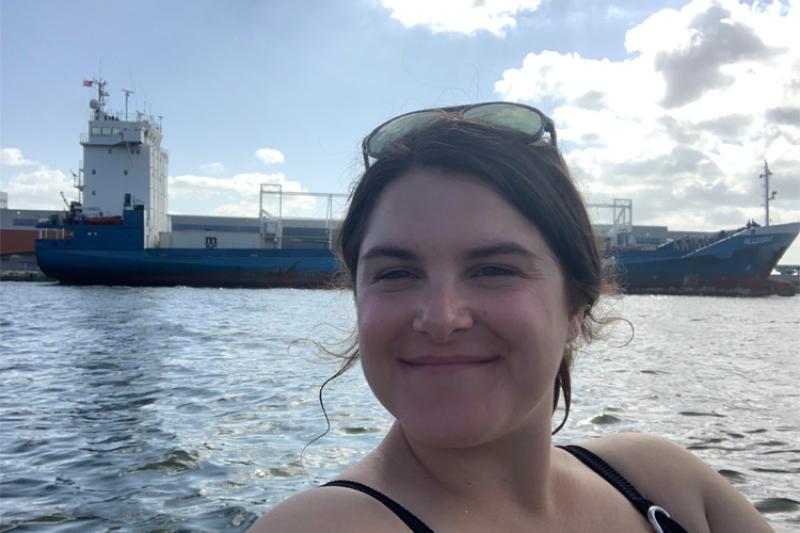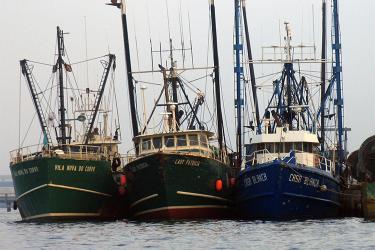Where did you grow up?
I grew up in Omaha, Nebraska, in the middle of the country and very far from the ocean.
Where did you go to school and in what subject did you get your degree(s)?
I attended Coastal Carolina University in Conway, South Carolina for my undergraduate degrees. I earned a Bachelor's of Science in Marine Science and a Bachelor’s of Arts in Spanish. For the Marine Science program, I participated in research focused on habitat use of coastal shark species. For the Spanish program, I learned to read, write, and speak the Spanish language. The program also primarily focused on anthropogenic aspects of various cultures.
I attended Nova Southeastern University in Fort Lauderdale, Florida where I earned a Master’s of Science in Marine Science. During my thesis research, I analyzed the vertical distribution and diet of whalefish that were collected from the Gulf of Mexico during the DEEPEND project.
How did you come to work at the Southeast Fisheries Science Center?
Throughout graduate school, I worked as a graduate assistant on campus. Student employee contracts were terminated during the pandemic, so I began looking for a flexible job that would allow me to finish my degree program. A lab-mate sent me a posting for a regular-time position at the University of Miami’s Cooperative Institute for Marine and Atmospheric Studies working on the Management History Project. I was hired shortly after and worked on that project for about a year. As the data entry tasks for that project were nearing completion, my NOAA advisors told me about a posting for a full-time Research Associate position. It was with the Southeast Fisheries Science Center’s Caribbean Fisheries Branch, which I am now happy to be part of.
What do you do at the science center?
I organize the Caribbean strategic planning project, which aims to improve data limitations of the U.S. Caribbean region as they relate to stock assessment and ecosystem-based fisheries management. As a subset of this project, I have been compiling a searchable, annotated inventory of past and ongoing federally funded research efforts in the U.S. Caribbean. This inventory will help classify the currently available data and identify potential data gaps and areas for improvement.
What do you like most about your position?
I like being able to collaborate with center personnel and regional partners in the U.S. Caribbean. I feel lucky to have found a position that uses both of my specialties of Hispanic cultures and marine science.
What advice would you have for someone interested in a career at NOAA Fisheries?
I still consider myself very new to the center and even newer to NOAA Fisheries, but my best advice would be to reach out and make connections. You never know who may be able to help you reach your career goals. Following NOAA Fisheries social media and the Faces of the Southeast Fisheries Science Center series are great ways to identify those to whom you could reach out!
What do you like to do outside of work?
I like to care for my house plants, paint with acrylics, cook, as well as travel to visit friends and family. My husband and I were married last month so right now I am enjoying being a newlywed! We go paddle boarding or kayaking often around Fort Lauderdale, Florida and we enjoy going to hockey games, especially when the Washington Capitals are in town. We have two rescue dogs, so most weekends you can find the four of us on an adventure in a state or county park!







